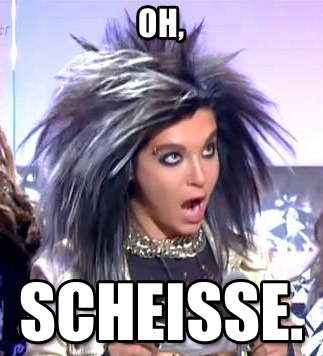Funny Avatars Biography
Source(google.com.pk)In computing, an avatar is the graphical representation of the user or the user's alter ego or character. It may take either a three-dimensional form,[1] as in games or virtual worlds, or a two-dimensional form as an icon in Internet forums and other online communities.[2][3] It can also refer to a text construct found on early systems such as MUDs.[4] It is an object representing the user. The term "avatar" can also refer to the personality connected with the screen name, or handle, of an Internet user.[5]
The word avatar originates in Hinduism, where it stands for the "descent" of a deity in a terrestrial form. (Deities in India are popularly thought to be formless and capable of manifesting themselves in any form.)
The use of the term avatar for the on-screen representation of the user was coined in 1985 by Chip Morningstar in designing Lucasfilm's online role-playing game Habitat.[6] The computer game Ultima IV: Quest of the Avatar was released in 1985, but does not use the word in this sense, only in its original religious sense; the player's in-game final objective is to become an "Avatar". Later games in the Ultima series use the term in the same sense as Habitat and introduce Habitat-style customization of avatars. Another early use of the term was in the pen and paper role-playing game Shadowrun (1989).
Despite the widespread use of avatars, it is unknown which Internet forums were the first to use them; the earliest forums did not include avatars as a default feature, and they were included in unofficial "hacks" before eventually being made standard. Avatars on Internet forums serve the purpose of representing users and their actions, personalizing their contributions to the forum, and may represent different parts of their persona, beliefs, interests or social status in the forum.
The traditional avatar system used on most Internet forums is a small (80x80 to 100x100 pixels, for example) square-shaped area close to the user's forum post, where the avatar is placed in order for other users to easily identify who has written the post without having to read their username. Some forums allow the user to upload an avatar image that may have been designed by the user or acquired from elsewhere. Other forums allow the user to select an avatar from a preset list or use an auto-discovery algorithm to extract one from the user's homepage.
Some avatars are animated, consisting of a sequence of multiple images played repeatedly. In such animated avatars, the number of images as well as the time in which they are replayed vary considerably.[10]
Other avatar systems exist, such as on Gaia Online, WeeWorld, Frenzoo or Meez, where a pixelized representation of a person or creature is used, which can then be customized to the user's wishes. There are also avatar systems (e.g. Trutoon) where a representation is created using a person's face with customized characters and backgrounds.
Another avatar-based system is one wherein an image is automatically generated based on the identity of the poster. Identicons are formed as visually distinct geometric images derived from a digest hash of the poster's IP address. In this way, a particular anonymous user can be uniquely identified from session to session without the need for registration or authentication. In the cases where registration has occurred, the identicon serves as a means to associate a particular user with a particular geometric representation. If an account is compromised, a dissimilar identicon will be formed as the attacker is posting from an unfamiliar IP address.
Funny Avatars

Funny Avatars
Funny Avatars
Funny Avatars

Funny Avatars

Funny Avatars

Funny Avatars

Funny Avatars
Funny Avatars


No comments:
Post a Comment